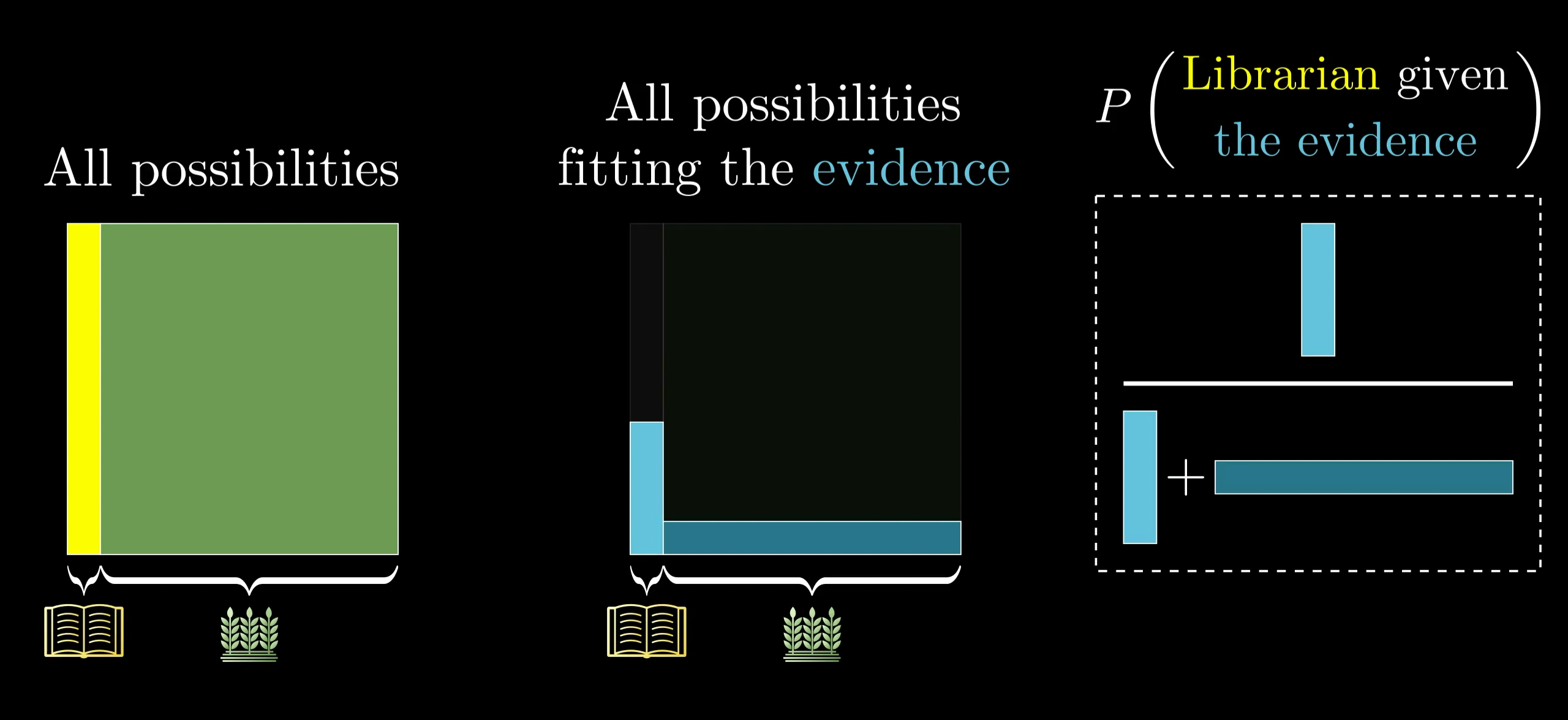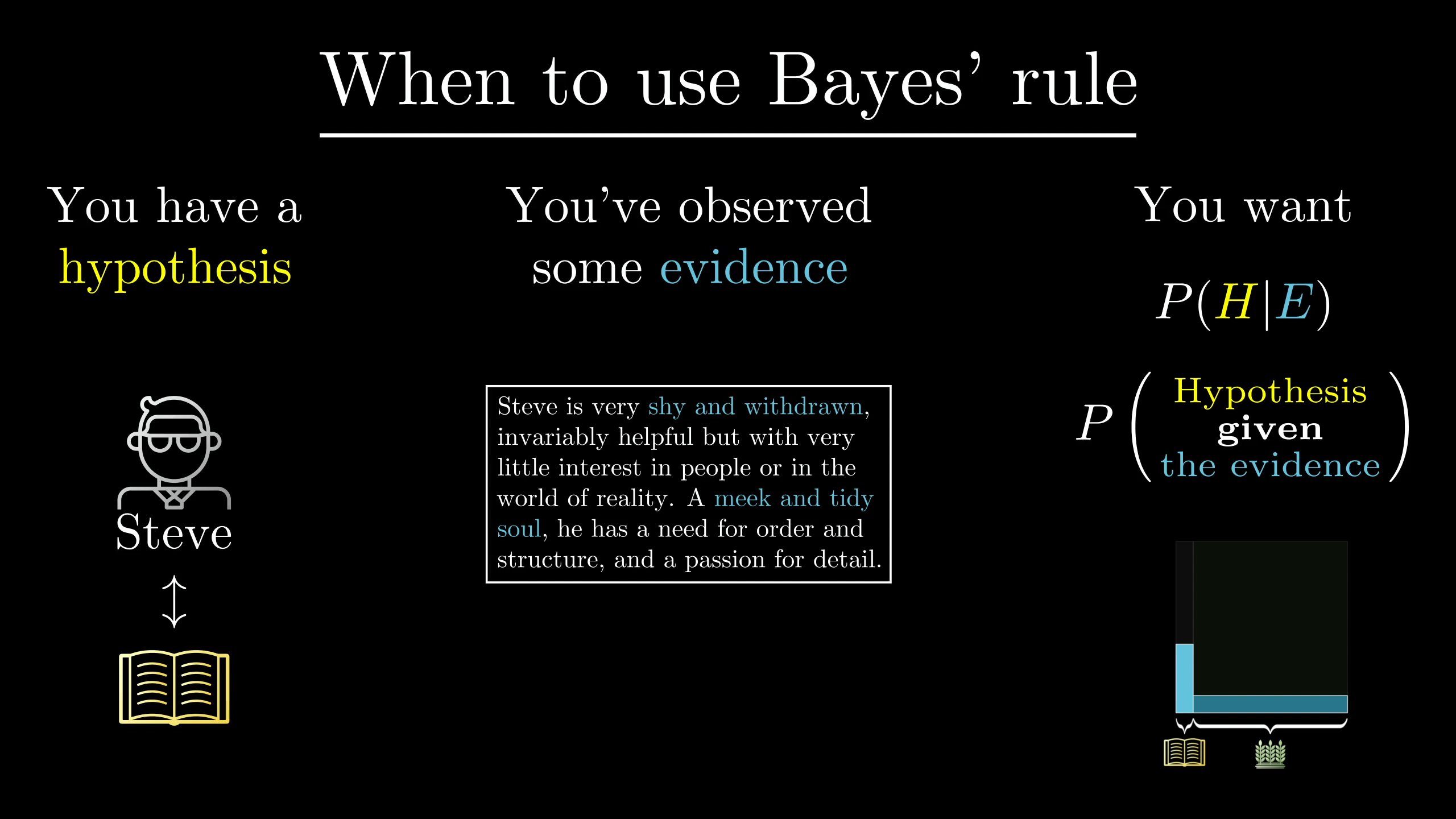Bayes' Theorem
An example
Steve is very shy and withdrawn, invariably helpful but with little interest in people or in the world of reality. A meek and tidy soul, he has a need for order and structure, and a passion for detail.
Which of the following do you find more likely: "Steve is a librarian" or "Steve is a farmer". We maybe think Steve is a librarian more likely than a farmer. But this may not true.
We all think this is true: Librarians more likely has those traits than farmers. But this doesn't mean that a random person that has those traits is more likely a librarian than a farmer. Why?
Suppose there are total 210 persons in which 10 are librarians in which all of them has those traits and the left 200 are farmers in which 20 have those traits. Given that a random person has those traits, the probability of its a librarian is , the probability of its a farmer is . Obviously, it's more likely a farmer than a librarian.

Conclusions
- Bayes' theorem is relevant in situations.

- In standard notation, this vertical bar means "given that". As in, we're restricting our view only to the possibility where the evidence holds.

- Prior and Likelihood

- Posterior

